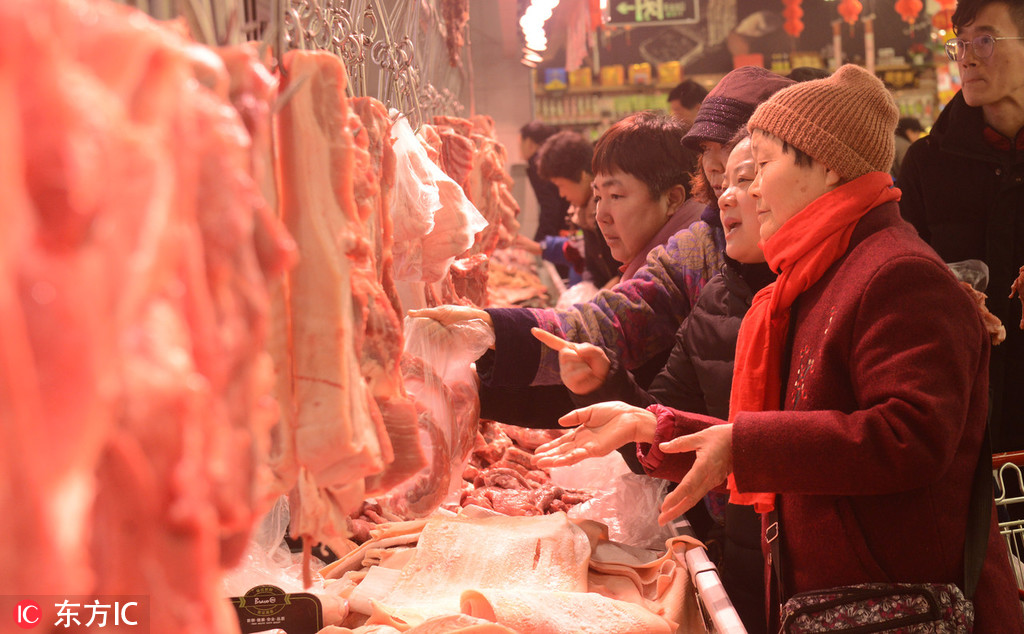The stock of hogs in China started to rebound last month, with the momentum expected to continue through next year, the Ministry of Agriculture and Rural Affairs said on Tuesday.

Citizens in Zhengzhou buy pork at a local supermarket, Jan 27, 2019. (Photo: China Daily)
In November, the stock of hogs increased by 2 percent over the previous month, marking the first month-on-month increase since November last year, while the number of breeding sows in stock further increased by 4 percent compared with the previous month, Wang Junxun, an official from the ministry's Animal Husbandry and Veterinary Department, said at a news conference.
"This shows the steady decline in hog production in China has been reversed," he said.
The hog stock rose last month in 18 provincial areas, compared with 12 in October. The stock in sizable pig farms-which produce more than 5,000 pigs every year-increased by 1.9 percent month-on-month last month, marking the third month-on-month consecutive growth, Wang said.
In November, production of pig feed increased by 6.9 percent compared with the previous month, following month-on-month increases in September and October, which also suggested a restoration of pig production, according to Wang.
With increased supply, pork prices continued to decline last month. Monitoring showed the average price of pork in farmers' markets was 51 yuan ($7.30) per kilogram in the last week of November, a decrease of 12.6 percent compared with the peak in October, he said.
Although stocks have started rising, it takes about half a year before a hog can be sold, which means a significant increase in pork availability in the market will not appear until the middle of next year, he said.
Pork supply may remain tight during the Spring Festival holiday, which falls in late January, a peak season for pork consumption, but the supply of other meats, such as poultry, beef and mutton, have increased this year, so the general balance of meat supply and demand can be ensured, he said.
Li Quan, executive CEO of TQLS Group, an agricultural company based in Chengdu, Sichuan province, said the company has accelerated the restoration of pig production recently, driven by market prospects.
To boost operations, the company is also working with more than 2,000 smaller pig raisers while offering services such as providing pig feed and drugs for them to ensure safety and quality of pork, Li said.
China's pig stock was seriously affected following African swine fever outbreaks in August last year, causing pork production to shrink by at least 20 percent compared with last year, some experts estimated.
Authorities at various levels have taken multiple measures over the past year to lift the production of pork, the most commonly consumed meat in China, while fighting African swine fever, including providing subsidies to sizable pig farms that restore production, ensuring land use for pig farms and streamlining approval procedures for environmental protection evaluation for major pig raisers.
In a three-year action plan released by the agriculture ministry recently, the ministry said every effort will be made to restore pork production as soon as possible. By the end of next year, it is expected that the production of hogs will have rebounded close to the level it was before the African swine fever outbreaks.


